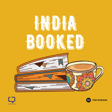
India Booked | Tales from the Himalayas
In this episode of India Booked, journalist and children’s book writer Priyanka Pradhan takes us on a journey through the Himalayas by discussing stories from her book ‘Tales from the Himalayas’ which features snow leopards to bagpiping girls to the real life stories of heroes from the Himalayan state of Uttarakhand, Gaura Devi and Nain Singh Rawat.
This book is for “all the children, including the children in us” as she says, for the stories in it, from the heart of the mountains, though fascinating and fun, are diverse and impactful at the same time.
This podcast is light hearted as Ayushi Mona and Priyanka Pradhan engage in a conversation about her childhood in Uttarakhand and the books she read growing up that inspired her to write one of her own, the causes and reasons of the events addressed in the book and the importance of why children and young readers need to be educated about it early on.
Tune in to this episode to get a sense of what lies in her book, the simplicity and innocence of its writing and its audience, and the way she modified the stories to make it relevant to current world, reflecting the times we live in now.
